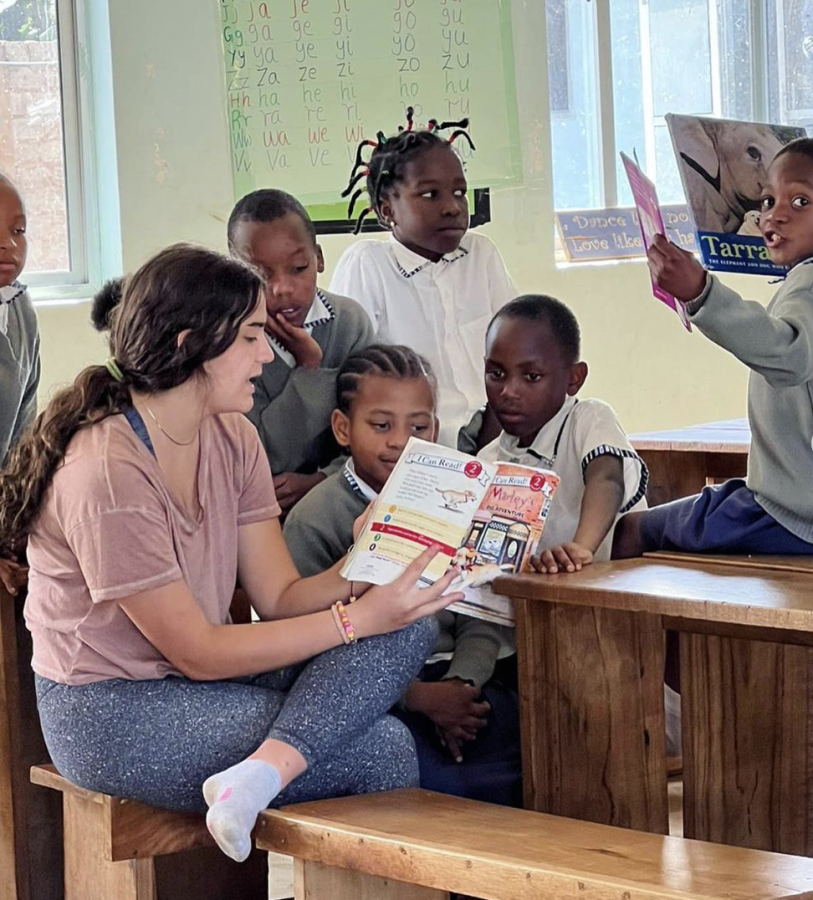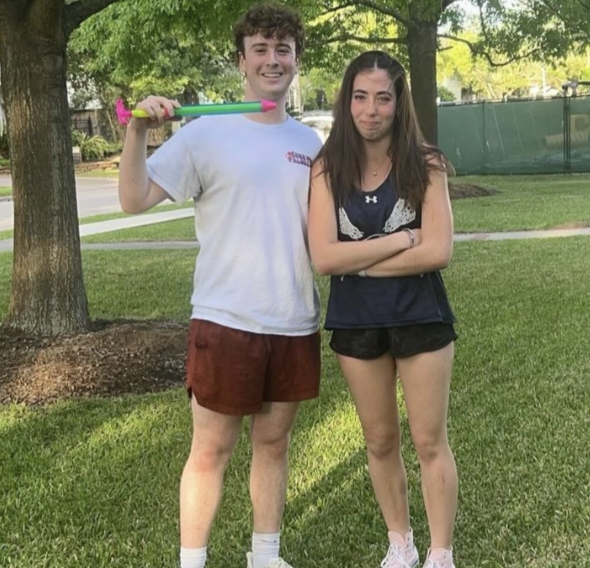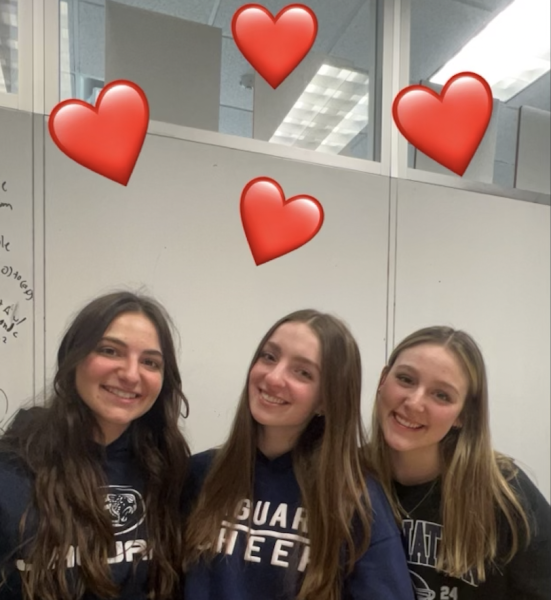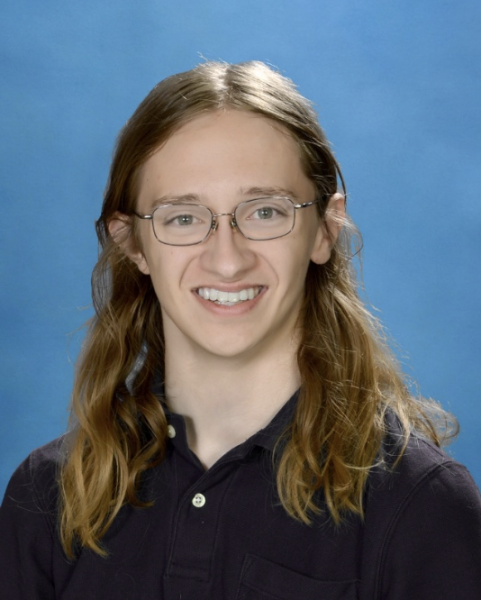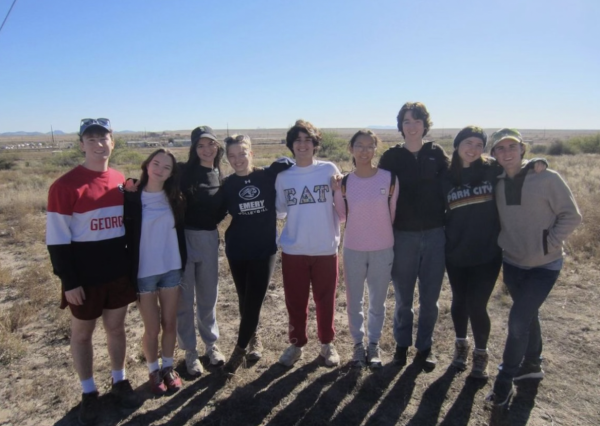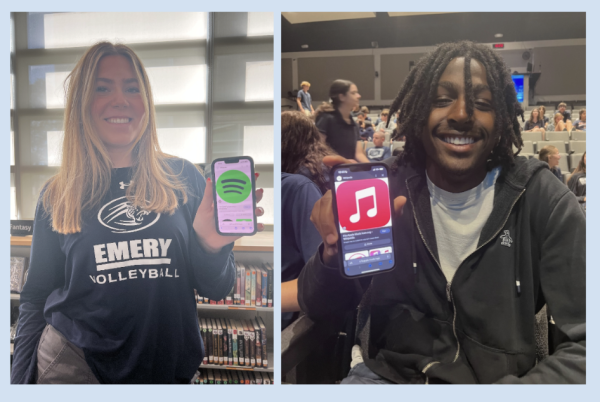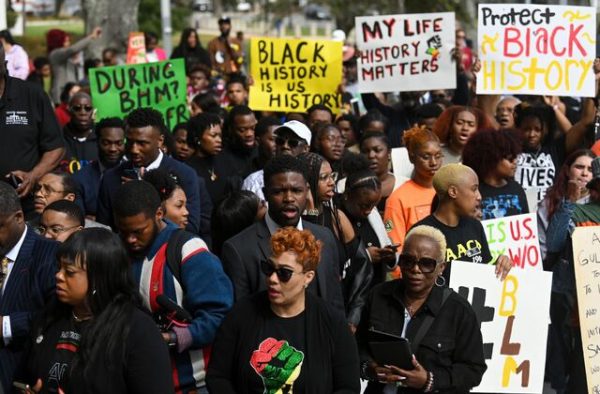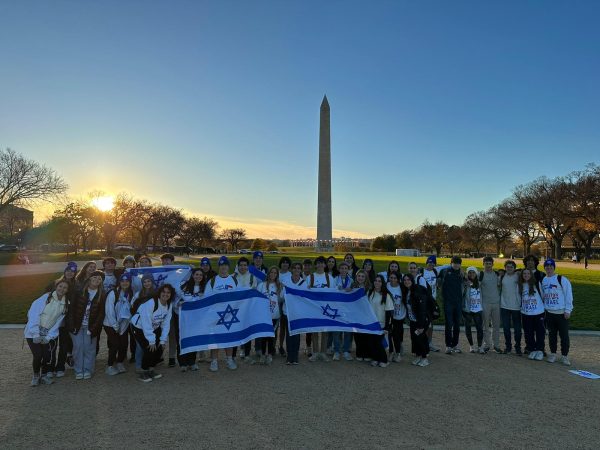EWS4Neema Embraces Tikkun Olam in Tanzania
Sophomore Emily Williams reading with students at the Uru Academy.
September 21, 2022
The EWS4Neema program provides Emery/Weiner students with the unique volunteer opportunity to venture across the Atlantic, to Uru, Tanzania to positively impact the lives of young children, as well as their own.
Neema International is a grassroots organization founded by Emery Alum, Maddy Stein, dedicated to ending the cycle of poverty in Tanzania by, as said on the Neema website, “investing in the lives of children.” Neema does this by promoting student sponsorships, housing educational programs, supporting the local community, and creating valuable connections with students. Since graduating from Emery in 2009, she has been influential to students, starting an impactful program from the ground up. EWS4Neema sponsor, Amber Gaudet, describes Stein as impactful, for she uses Neema “not as a business, but as a way to give back to others.”
Poverty is one of humanity’s greatest villains, specifically when referring to the education system. Poverty can terrorize brain development and psychological well-being, making adequate education, in an impoverished setting, more challenging. This instability in education directly affects how populations grow, develop, and change. Without proper education, the possibility of greatness and prosperity gets barred.
In Uru, Tanzania, the Neema International program aims to alleviate this impending cycle of poverty. They try to reach this goal by “helping them (the kids) get the education, life skills, and confidence they need to break free from poverty.” The actions taken by the volunteers and leaders at Neema International are heroes in the fight to end and help cope with the horrible effects of immense poverty.
Every year when Emery students venture out to engage in this once-in-a-lifetime opportunity, they come back with a deeper understanding of volunteerism and community. Gaudet believes that it “builds a sense of [gratitude]” within the students, for it allows students to feel vulnerable and uncomfortable and Gaudet believes that people “need to be able to be a little bit uncomfortable, to be able to feel a little raw.”
Gaudet hopes the volunteer trip stands as a model of what Tikkun Olam should look like: finding “connections that are long-lasting,” and finding a realm of volunteering that you are “passionate about.” She hopes that the connections and bonds made on the Neema trip between Emery students and students from Tanzania will strengthen and empower the Emery population.
The EWS4Neema program is a year-round activity, the summer opportunity is only meant to serve as a “mouthpiece,” for future activities, and charitable events that are spearheaded by EWS4Neema. By hosting drives and raising money, the EWS4Neema program is allowed to provide for the people of Uru, Tanzania, to do their part in repairing the world. As well as raising money or collecting donations, EWS4Neema sells the goods made and originally marketed by the Tanzanian people. EWS4Neema then takes the funds raised from the selling of their goods, and directly funds the original producer, creating sales and business from the states, as they continue to attempt to heal the world of impending poverty.
